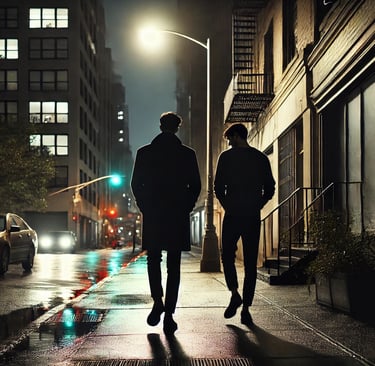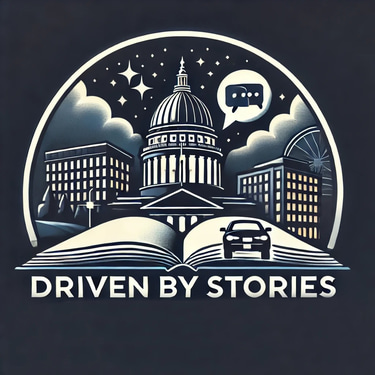Can We Move On?
In Can We Move On?, I observe two contrasting friendships—one where grace is given freely and another where accumulated disappointments lead to silent, inevitable fracture. Through these fleeting moments, the essay reflects on the weight of forgiveness, the quiet unraveling of relationships, and the question of whether connection matters more than failure.
4-minute read
Tuesday nights in Madison settle into something quieter. No weekend chaos, no Monday morning regrets — just a city humming at half-speed, waiting for whatever comes next.
The night moves in stretches of silence, quick conversations, and the occasional ride that feels like nothing at all. Most of them blur together, forgotten as soon as they’re over.
But some moments stay.
Ella and her friend got into my car some weeks back. The details blur, but the feeling sticks. They were mid-conversation before the doors even shut, their words easy, familiar.
Her friend had forgotten her birthday. Not intentionally, not maliciously — just in the way people forget things when life pulls them in too many directions. Ella wasn’t really mad, but she wanted to make a point. Her friend, unfazed but not unfeeling, pointed out that Ella had forgotten hers last year.
It could have turned into something else. A quiet resentment, a fight they both pretended wasn’t a fight. But it didn’t.
Then came the question. Can we move on?
A pause. A breath. And then Ella sighed. Yes. Because I love you.
That was it. No tally marks. No keeping score. Just the decision that the friendship mattered more than this one mistake.
They got out still talking, the thread of annoyance already unraveling into something else.
That was then. But tonight, the air in my car felt different.
Two men, silent. Arms crossed; shoulders stiff. The kind of silence that’s not a pause but a dead end. One finally spoke, voice clipped. You’re seriously still mad?
The other exhaled, staring out the window before answering. It’s not just tonight.
The words sat heavy between them. Could have been about anything — flaking, showing up late, never really showing up at all. One of them tried to smooth it over. People mess up. You can’t expect perfection. It’s not that deep.
But for the other, it was. Not because of one mistake, but because of every mistake, piling up until it became something heavier. The silence that followed wasn’t an opening — it was a closing.
By the time we reached their stop, one of them was already halfway out the door. The other lingered just a second longer, watching him go. Then came a sigh. The kind that says fine, whatever even when no one’s there to hear it. The door slammed shut.
And I thought about the times I’ve let friendships slip away.
I’ve been a flake, sure. But I’ve also been the one left out. The one watching from the edges as the group shifts, as conversations continue without me, as my name gets rewritten into something easier to discard. I’ve heard the whispers that weren’t meant for me. I’ve known the feeling of realizing it’s not just one person talking — it’s a narrative, a version of me being built without my permission.
And don’t you want to tell the others that the person whispering to them has whispered about them, too?
But you don’t. Because you believe in grace.
Some friendships stretch, bend, and settle back into place. Grace is given not because it’s earned, but because the connection is worth more than the moment of failure.
Others don’t bend. They break. Not because of one moment, but because of too many stacked together. Because sometimes, grace was never really there in the first place.
And some friendships don’t end because of a lack of grace, but because you’re tired of being a punching bag.
I think we’ve all been on both sides of that.
And I think, at some point, we all have to ask ourselves — does the connection matter more than the moments of failure?
The city keeps moving. So, I keep driving.


